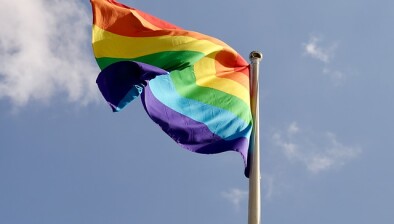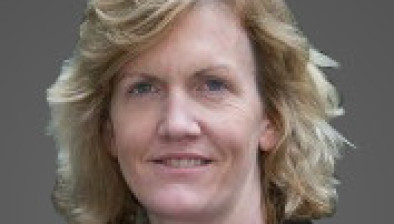NI High Court: No discrimination in denying IVF treatment for same-sex couple

Northern Ireland’s High Court has refused an application for judicial review where it was alleged that a same-sex couple suffered discrimination after being denied access to a publicly-funded IVF scheme.

About this case:
- Citation:[2022] NIKB 21
- Judgment:
- Court:NI High Court
- Judge:Judge Adrian Colton QC
The court found that the criteria for obtaining access to the scheme were rational and proportionate, and that the applicant had conflated issues around fertility treatment with issues regarding surrogacy.
Background
The applicant, a male in a same-sex relationship, sought leave for judicial review on behalf of himself and his civil partner.
The couple were anxious to have a child, and hoped to achieve this by way of publicly-funded in vitro fertilisation (IVF) through gestational surrogacy. They made a private arrangement with a 37-year-old surrogate who was a personal friend.
She agreed to carry a child to childbirth, but had previously undergone a voluntary sterilisation procedure. The agreement with the applicant therefore involved the use of a donor egg from another adult female.
The fact that a donor egg from another adult female would be used meant the surrogate would have “no biological connection to the child”, known as ‘gestational surrogacy’.
The current eligibility criteria for publicly-funded IVF treatment does not make provision for this scenario, as voluntary sterilisation acts as a bar to publicly-funded fertility treatment in Northern Ireland.
The eligibility criteria were the subject of the challenge, as the applicant argued that this approach was unlawfully discriminatory and failed to make proper provision for the funding of treatment for a same-sex male couple.
The applicant’s case
The applicant was “heartbroken” when they were told that they would not be eligible for publicly funded IVF treatment, and later received a letter from the relevant trust claiming that “fertility services are only commissioned for women”.
The court accepted that this response was an oversimplification of the issues, and a more fully reasoned explanation was merited.
The grounds of challenge, therefore, were irrationality in the Wednesbury sense; illegality based on breaches of Articles 8 and 14 ECHR; and a breach of article 30 of the Sex Discrimination (Northern Ireland) Order 1976.
The applicant alleged that the criteria directly discriminated against him on the grounds of his gender and sexual orientation, with regard to the provision of goods and services, and on the basis of his status as a male, and by virtue of being in a same-sex male relationship.
The applicant noted that a surrogate of a couple who had demonstrated a medical fertility issue would be eligible for IVF even if the surrogate did not have a fertility issue and even if the surrogate had been sterilised, provided the surrogate was required to achieve a pregnancy.
This differed from the applicant’s case because, in the absence of any medical fertility issue affecting either one of the couple or the surrogate, the surrogate was not eligible for IVF treatment.
Further, the applicant argued that a same-sex female couple are permitted to use donor sperm, while his surrogate was not being permitted to use a donor egg. He argued that to make a distinction between the use of a donor egg, as opposed to a donor sperm, was arbitrary and discriminated against a same-sex male couple.
Consideration
The court noted that IVF is a medical treatment that “by definition can only be provided to a woman in order to assist in achieving pregnancy”. The purpose of the policy and criteria, therefore, was to provide publicly funded treatment for medical infertility, irrespective of gender or sexual orientation.
The court considered that both of the applicant’s arguments were “misconceived”. Anyone seeking access to publicly funded fertility treatment must demonstrate a fertility issue before access is available.
Further, the court found that the use of donor eggs and the use of donor sperm is not the same thing, and the analogy is inapposite, as a donor egg cannot be used in artificial insemination as a means by which a fertility problem can be demonstrated, according to the criteria.
Ultimately, there was no entitlement to direct access to treatment until a medical fertility problem was indicated. The court noted that the “intention behind the IVF criteria is not to provide a publicly funded surrogacy service for anyone, whatever their sex or sexual orientation”.
Further, the court found that “there is no doubt that the criteria provide for equality of treatment”. The judge argued that the applicant had conflated fertility treatment and surrogacy.
If the applicant was correct in so doing, then because the State provides limited IVF treatment to women in certain circumstances of demonstrated infertility to assist them in achieving pregnancy, it would be obliged to offer male same sex couples a gestational surrogacy service whereby IVF is used as the means by which pregnancy of a surrogate might be achieved, irrespective of whether that surrogate has infertility issues that would otherwise entitle her to publicly funded IVF in her own right.
The judge went on to say that:
“The effect of this would be to render the qualifying criteria for publicly funded IVF redundant as all women would be able to lay claim to IVF without having to go through the earlier criteria requirements.”
If the applicant could establish a claim of indirect discrimination, the judge also found that any such discrimination would be justified and/or proportionate.
Further, the court rejected any argument that there was a positive obligation under Article 8 ECHR for the State to provide publicly funded IVF treatment.
In light of the court’s analysis, the assertion of irrationality based on the Wednesbury argument fell away. The applicant argued that there was no consideration of the requirement for equal treatment for same sex couples. This was “clearly not the case as the purpose of the criteria was to open a gateway for same sex couples to receive IVF treatment”.
Conclusion
Ultimately, the court made clear that there is no publicly-funded surrogacy service in Northern Ireland, irrespective of gender or sexual orientation. The judge stressed that “a surrogacy arrangement should not be conflated with medical fertility treatment”.
For these reasons, the substantive application for judicial review was refused.









